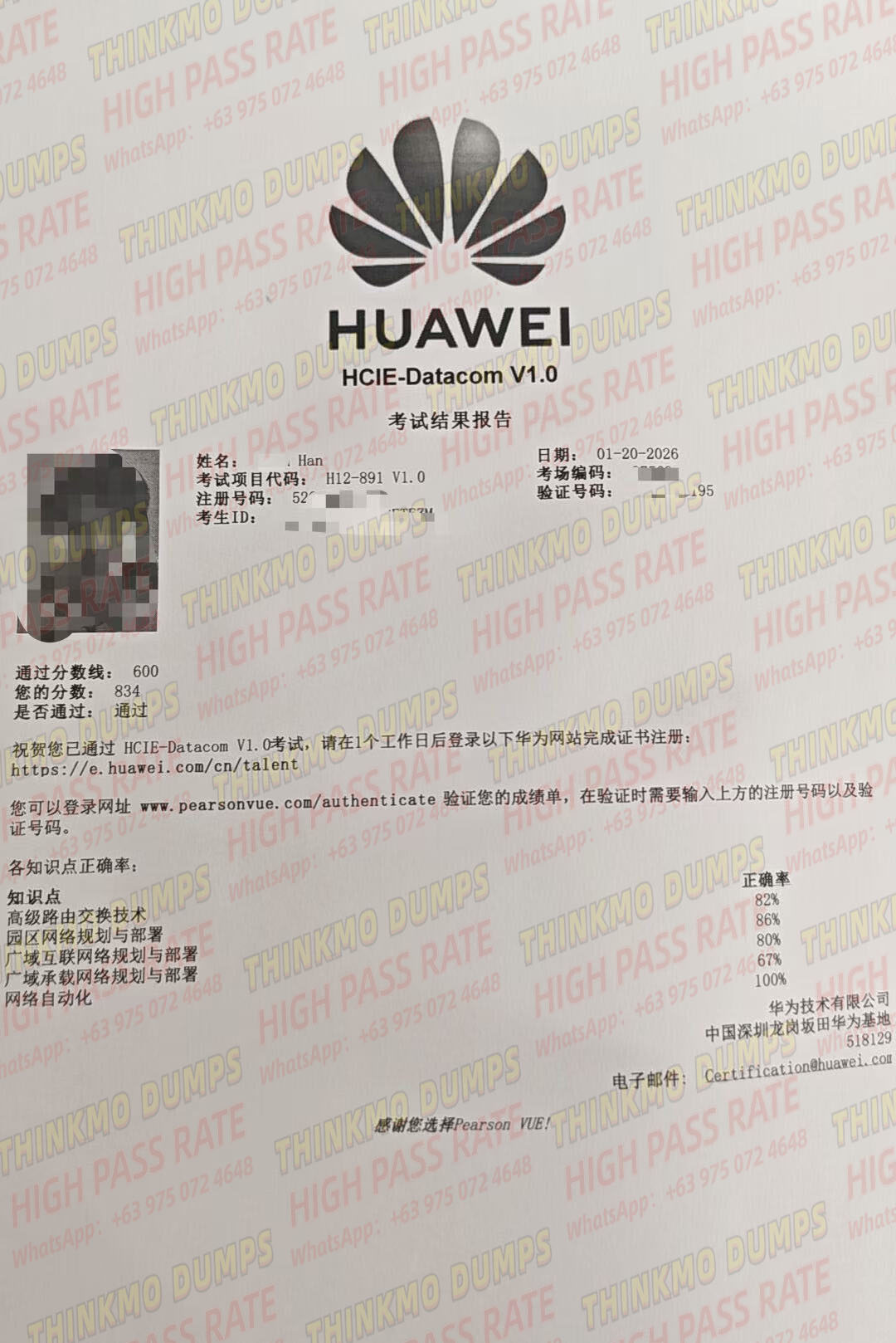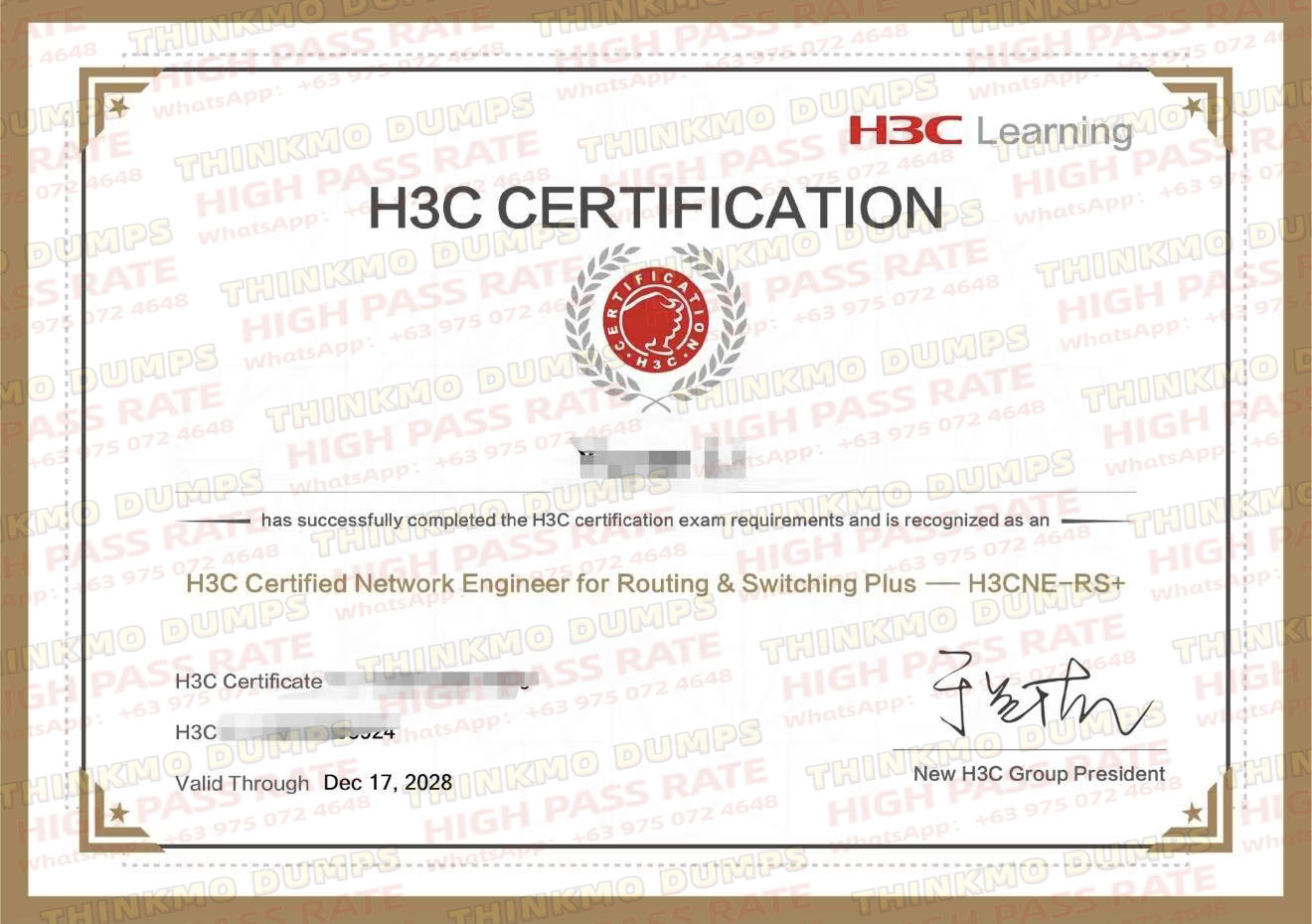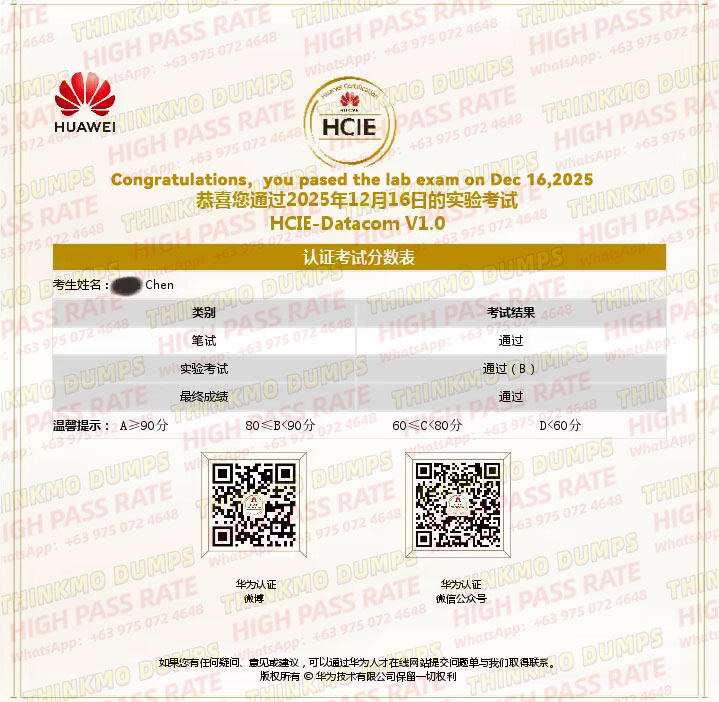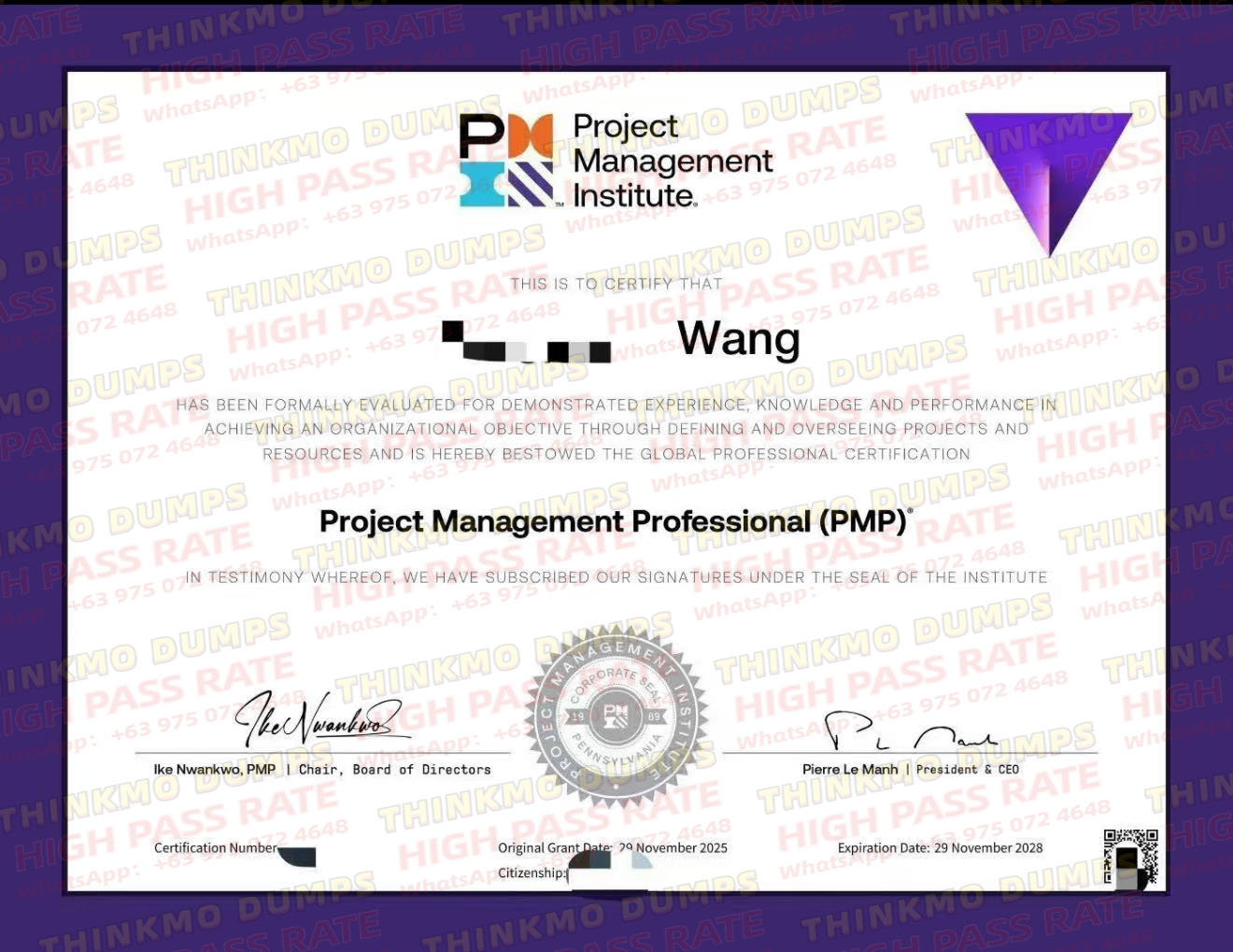What Is the CKA Certification in Kubernetes?
Update time:2025-10-13
If you’re planning to enter the cloud-native field, you’ve probably heard of Kubernetes (K8s) certifications — and the CKA (Certified Kubernetes Administrator) is one of the most recognized ones.
But what exactly is CKA?How is it different from other K8s certifications?And is it worth it?
Here’s a complete and practical guide that breaks it all down — what CKA is, what it tests, how much it’s worth, and how to prepare effectively with dumps.

1.What Is the CKA Certification?
CKA (Certified Kubernetes Administrator) is a globally recognized certification jointly launched by the Cloud Native Computing Foundation (CNCF) and the Linux Foundation.
It validates your ability to independently manage and troubleshoot Kubernetes clusters in real-world environments.

Key Attributes
(1)Authority & Recognition
Official organizations: Created by CNCF, the governing body behind Kubernetes and other core cloud-native projects.
Vendor-neutral: Applies to all Kubernetes environments (Alibaba Cloud, AWS, GCP, Azure, etc.).
Industry trust: Recognized globally by employers and even included in some regional talent programs.
(2)100% Practical Exam
Duration: 2-hour online proctored test.
Tasks performed in a real K8s environment — no multiple choice, no theory.
Candidates can reference official Kubernetes documentation during the exam, emphasizing problem-solving skills over memorization.
(3)Target Audience
Cloud engineers and DevOps professionals moving toward cloud-native roles.
Developers who need Kubernetes operations skills.
Professionals focusing on K8s cluster management (not app development or security).

2.Exam Scope & Skill Mapping
The 2025 CKA exam blueprint reflects current enterprise K8s use cases, divided into five key modules:
Troubleshooting (30%)
Diagnose and fix node/pod issues, recover etcd data, and handle cluster failures.
Tests your production-level emergency response capability.
Cluster Architecture, Installation & Configuration (25%)
Manage HA deployments, upgrades, RBAC, Helm/Kustomize.
Covers full lifecycle cluster management aligned with enterprise operations.
Services & Networking (20%)
Configure Services, Network Policies, and Gateways for microservice communication and isolation.
Workloads & Scheduling (15%)
Manage Deployments, rollbacks, configuration updates, and resource scheduling to ensure smooth releases.
Storage (10%)
Configure PV/PVCs, dynamic volumes, and persistence strategies to safeguard application data.

3.Why the CKA Certification Matters
Career Impact
Preferred by major employers — top companies (Alibaba, Huawei, Google, Microsoft) prioritize certified K8s admins.
Salary boost: Certified professionals typically earn 20–40% higher salaries in first-tier cities.
Resume credibility: Even for newcomers without project experience, certification acts as a strong skills endorsement.
Limitations
Focused on cluster administration, not app development (CKAD) or security (CKS).
Limited direct relevance for managed K8s environments (e.g., Alibaba ACK console users).
Represents mid-level operational proficiency, not senior architect expertise.
4.Efficient Preparation Strategy
Stage 1 — Foundation (4–6 weeks)
Resources: Kubernetes official docs (“Getting Started” & “Administration”) and CNCF materials.
Key focus: Understand concepts deeply rather than memorizing commands.
Boost your prep: Start with an up-to-date CKA dumps — it helps you recognize command patterns and real exam scenarios faster.
Stage 2 — Hands-on Practice (4–6 weeks)
Recommended environments:
Killercoda (browser-based labs)
Play with Kubernetes (multi-node simulation)
Kind (local cluster setup tool)
Must-practice tasks: troubleshooting, cluster upgrade, RBAC setup, etcd backup and restore.
Daily habit: 1–2 hours of practical lab exercises, plus targeted drills from the CKA lab dumps.
Stage 3 — Mock Exam Simulation (2 weeks)
Tools: Killer.sh (officially recommended simulator, includes 2 free attempts with exam registration).
Goal: Familiarize with real timing, task flow, and pressure.
Tips:
Practice with timed mock exams from your dumps.
Focus on high-weight tasks first.
Use command aliases (e.g., k=kubectl) to save time.
After each question, verify with kubectl get to ensure correctness.
Pro tip: Many candidates rely on comprehensive dumps for CKA prep — this approach helps you master the structure of tasks and the official grading logic, significantly improving pass rates.
5. Certification Maintenance & Career Growth
Validity: 2 years.
Renewal: Earn 120 Continuing Education (CE) credits through CNCF community activities or online courses.
Advanced paths: Move up to CKAD (developer) or CKS (security) certifications to expand your expertise.
6. Summary
If your goal is to work in Kubernetes operations, cluster management, or cloud-native infrastructure, the CKA certification is absolutely worth it.
It’s a hands-on, vendor-neutral validation of real technical skills — exactly what enterprises are looking for.
For an efficient, structured preparation path, use a professional CKA dumps that includes:
With consistent practice and focused review, you can pass CKA in 2–3 months — gaining a powerful credential that boosts your confidence and career prospects in the fast-growing cloud-native industry.
I'm your man who have the 100% valid dumps , buy it now for 50% off to clear your exam!
Click it ↓↓

But what exactly is CKA?How is it different from other K8s certifications?And is it worth it?
Here’s a complete and practical guide that breaks it all down — what CKA is, what it tests, how much it’s worth, and how to prepare effectively with dumps.

1.What Is the CKA Certification?
CKA (Certified Kubernetes Administrator) is a globally recognized certification jointly launched by the Cloud Native Computing Foundation (CNCF) and the Linux Foundation.
It validates your ability to independently manage and troubleshoot Kubernetes clusters in real-world environments.
Key Attributes
(1)Authority & Recognition
Official organizations: Created by CNCF, the governing body behind Kubernetes and other core cloud-native projects.
Vendor-neutral: Applies to all Kubernetes environments (Alibaba Cloud, AWS, GCP, Azure, etc.).
Industry trust: Recognized globally by employers and even included in some regional talent programs.
(2)100% Practical Exam
Duration: 2-hour online proctored test.
Tasks performed in a real K8s environment — no multiple choice, no theory.
Candidates can reference official Kubernetes documentation during the exam, emphasizing problem-solving skills over memorization.
(3)Target Audience
Cloud engineers and DevOps professionals moving toward cloud-native roles.
Developers who need Kubernetes operations skills.
Professionals focusing on K8s cluster management (not app development or security).
2.Exam Scope & Skill Mapping
The 2025 CKA exam blueprint reflects current enterprise K8s use cases, divided into five key modules:
Troubleshooting (30%)
Diagnose and fix node/pod issues, recover etcd data, and handle cluster failures.
Tests your production-level emergency response capability.
Cluster Architecture, Installation & Configuration (25%)
Manage HA deployments, upgrades, RBAC, Helm/Kustomize.
Covers full lifecycle cluster management aligned with enterprise operations.
Services & Networking (20%)
Configure Services, Network Policies, and Gateways for microservice communication and isolation.
Workloads & Scheduling (15%)
Manage Deployments, rollbacks, configuration updates, and resource scheduling to ensure smooth releases.
Storage (10%)
Configure PV/PVCs, dynamic volumes, and persistence strategies to safeguard application data.
3.Why the CKA Certification Matters
Career Impact
Preferred by major employers — top companies (Alibaba, Huawei, Google, Microsoft) prioritize certified K8s admins.
Salary boost: Certified professionals typically earn 20–40% higher salaries in first-tier cities.
Resume credibility: Even for newcomers without project experience, certification acts as a strong skills endorsement.
Limitations
Focused on cluster administration, not app development (CKAD) or security (CKS).
Limited direct relevance for managed K8s environments (e.g., Alibaba ACK console users).
Represents mid-level operational proficiency, not senior architect expertise.
4.Efficient Preparation Strategy
Stage 1 — Foundation (4–6 weeks)
Resources: Kubernetes official docs (“Getting Started” & “Administration”) and CNCF materials.
Key focus: Understand concepts deeply rather than memorizing commands.
Boost your prep: Start with an up-to-date CKA dumps — it helps you recognize command patterns and real exam scenarios faster.
Stage 2 — Hands-on Practice (4–6 weeks)
Recommended environments:
Killercoda (browser-based labs)
Play with Kubernetes (multi-node simulation)
Kind (local cluster setup tool)
Must-practice tasks: troubleshooting, cluster upgrade, RBAC setup, etcd backup and restore.
Daily habit: 1–2 hours of practical lab exercises, plus targeted drills from the CKA lab dumps.
Stage 3 — Mock Exam Simulation (2 weeks)
Tools: Killer.sh (officially recommended simulator, includes 2 free attempts with exam registration).
Goal: Familiarize with real timing, task flow, and pressure.
Tips:
Practice with timed mock exams from your dumps.
Focus on high-weight tasks first.
Use command aliases (e.g., k=kubectl) to save time.
After each question, verify with kubectl get to ensure correctness.
Pro tip: Many candidates rely on comprehensive dumps for CKA prep — this approach helps you master the structure of tasks and the official grading logic, significantly improving pass rates.
5. Certification Maintenance & Career Growth
Validity: 2 years.
Renewal: Earn 120 Continuing Education (CE) credits through CNCF community activities or online courses.
Advanced paths: Move up to CKAD (developer) or CKS (security) certifications to expand your expertise.
6. Summary
If your goal is to work in Kubernetes operations, cluster management, or cloud-native infrastructure, the CKA certification is absolutely worth it.
It’s a hands-on, vendor-neutral validation of real technical skills — exactly what enterprises are looking for.
For an efficient, structured preparation path, use a professional CKA dumps that includes:
Updated real exam simulations
Detailed explanations and solutions
Timed mock environments
Command reference sheets for faster recall
With consistent practice and focused review, you can pass CKA in 2–3 months — gaining a powerful credential that boosts your confidence and career prospects in the fast-growing cloud-native industry.
I'm your man who have the 100% valid dumps , buy it now for 50% off to clear your exam!
Click it ↓↓

Hot article
-
 1
1 1. ThinkMo Precise Question Bank: Ace HCIE Written
上传:2026-01-23
-
 2
2 Triple H3CNE/H3CSE Passes | ThinkMo Christmas Succe
上传:2025-12-25
-
 3
3 Success Streak: ThinkMo’s Dec HCIE-Datacom Win
上传:2025-12-24
-
 4
4 ThinkMo Guide: Cisco & Huawei Certification Com
上传:2025-12-22
-
 5
5 Pass CCIE/CKA Exams with ThinkMo’s Top Question B
上传:2025-12-19








